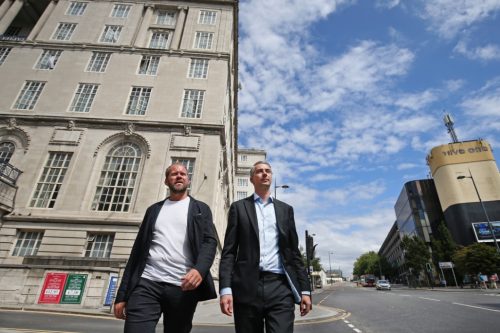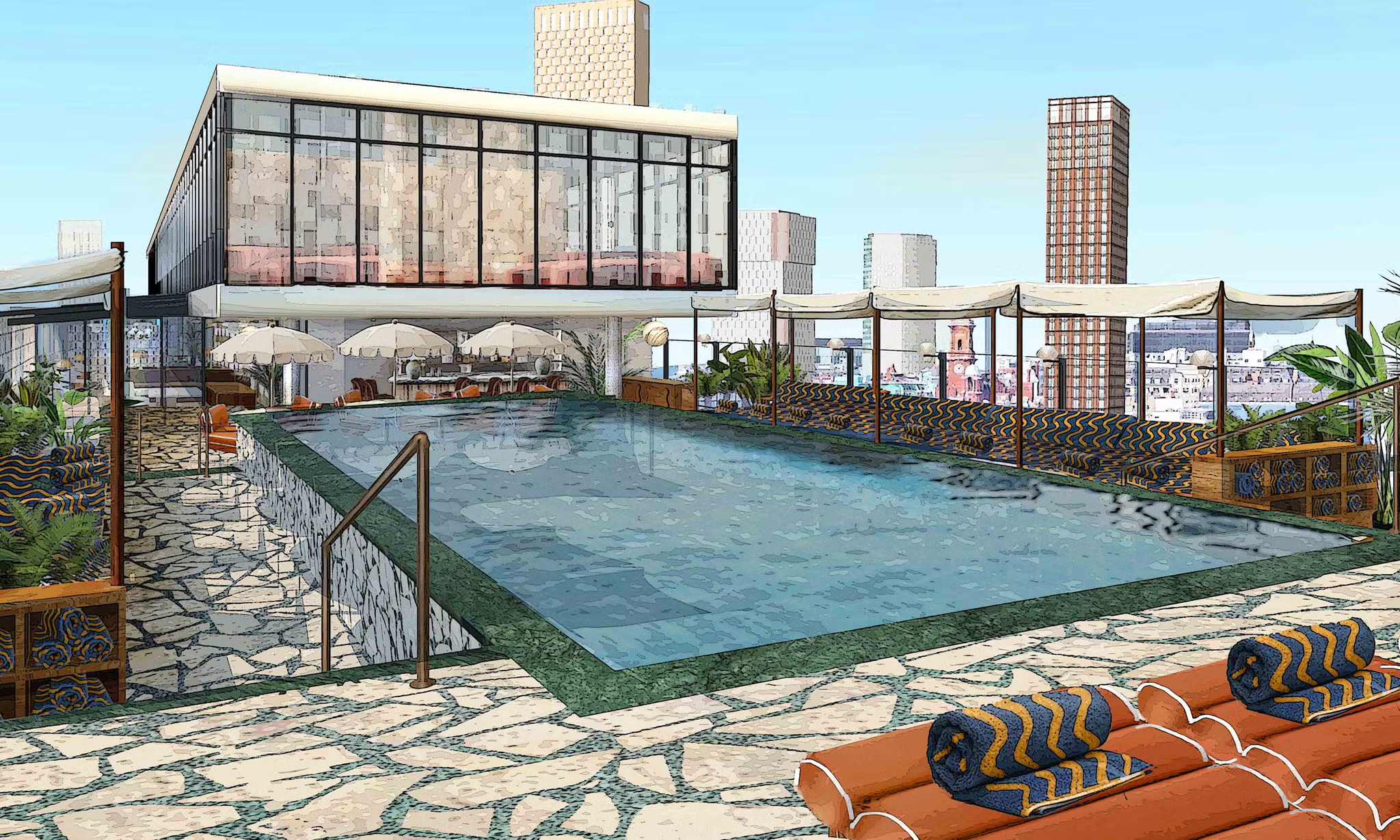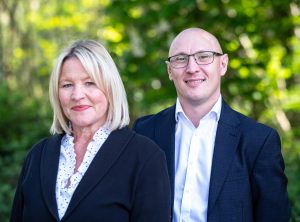‘Super team’ to shape Gateway masterplan for £2bn scheme

Liverpool City Council has appointed a ‘super team’ of planning experts to develop a masterplan for the Knowledge Quarter Gateway site to create a £2bn flagship regeneration scheme.
After a tendering exercise the council has chosen a consortium of three companies to independently develop a Spatial Regeneration Framework (SRF) for the Knowledge Quarter Gateway (KQG) which covers more than 56 acres within the city centre.
The experienced team will be tasked at looking at how best to redevelop the Lime Street area around the Adelphi Hotel, Central Station and Mount Pleasant, and dovetailing the proposals from Liverpool John Moores University on its Copperas Hill site, plans for the Fabric District, Merseytravel’s plans for Central Station and various private sector schemes such as Circus Liverpool at the old Lewis’s building.
The KQG team’s roles will be: GVA HOW Planning – strategic planning and consultation lead; K2 Architects – masterplanning and architecture lead; Planit-IE – place-making and landscape lead.
The team will also include a number of other supporting consultants, including Mott Macdonald (transport), GVA (property advisory services), Rob Burns (heritage), and Enfusion (strategic environmental assessment).
Liverpool City Council, which recently acquired Central Station shopping centre and is overseeing public realm proposals for St George’s Plateau, has also set out an ambition to redevelop the Mount Pleasant Car Park area to create an international standard gateway for the KQ Liverpool Mayoral Development Zone which currently employs 7% of the city’s workforce.
The council, which is also currently developing the £1bn Paddington Village scheme in the heart of the development zone, has timetabled the submission of the final SRF report by Spring 2019.
Once adopted as a Spatial Planning Document it will become part of the authority’s statutory process to inform all future planning applications in the area.
Mayor of Liverpool, Joe Anderson, said: “The Knowledge Quarter Gateway is vital to this city’s economic future and such is the scale of its potential it will be a huge employer for generations to come.
“This gateway project is now the final piece in the jigsaw to connect the site to the rest of the city centre and complete the wider regeneration of Lime Street, Mount Pleasant and Brownlow Hill.
“Its impact cannot be underestimated and I’m delighted we have now a team of experts with the right experience to shape its direction.”
The key planning issues within the KQG area are identified in the emerging Local Plan for Liverpool and include:
• Increasing economic potential and attracting and retaining high growth businesses;
• Supporting and enhancing the retail function of the London Road Shopping Area;
• Supporting the regeneration of the London Road Area and Islington for uses that support KQ Liverpool and deliver Islington Regeneration Company’s vision for the area;
• The appropriateness of the area for purpose-built student accommodation;
• Improving public realm, connectivity and green infrastructure across the area; and
• Bringing under-utilised and vacant land/buildings back into productive use.
Neil Lucas, at GVA HOW Planning, said: “Our team has been brought together especially for this project as we know Liverpool, having helped design, shape and deliver some of the biggest regeneration schemes in the city, such as Ten Streets, Liverpool Waters, Liverpool One, and Festival Park to name a few.
“We aim to build upon the good work that has already been undertaken to date in the SRF area, and prepare a document that will help guide the transformation of this key part of the city centre into a true gateway of city, regional and international importance.”
Mark Davies, director at K2 Architects, said: “The KQ Liverpool vision is for a new epicentre that will break down the historical boundaries and repurpose the magnificent heritage to reconnect the Gateway to the city, Knowledge Quarter and the Waterfront.
“The KQ Gateway is about ambition, not accepting the norm and going the extra mile, Liverpool City Council share this ambition and this team will now deliver it.”
Pete Swift, managing director at Planit-IE, added: “We are excited about working collaboratively to envision what the ‘threshold’ of the KQ will look like, how it will function and, most importantly, its role in our dynamic and growing city.
“Working also as part of the University of Liverpool masterplan team, Planit-IE are keen to explore the ‘glue’ and engage in the wider debate on what is the largest area of city-making potential anywhere in Liverpool.”
Colin Sinclair, chief executive of KQ Liverpool, said: “The phenomenal growth of KQ Liverpool, along with the ongoing regeneration of Lime Street, has shone the spotlight on KQ Gateway.
“It represents one of the greatest development opportunities in the UK and, alongside Paddington Village, will have a major impact on the city’s economy, creating thousands of jobs, in science, tech, health, education, retail and leisure.
“The SRF will truly allow us to plan a world-class development, enabling Liverpool to continue to compete with any city in Europe.”
Once approved by the council’s cabinet, the SRF will be adopted as a Spatial Planning Document to guide all future planning applications in the area and provide developers with detailed information of design and build issues including height, scale and massing of buildings.







